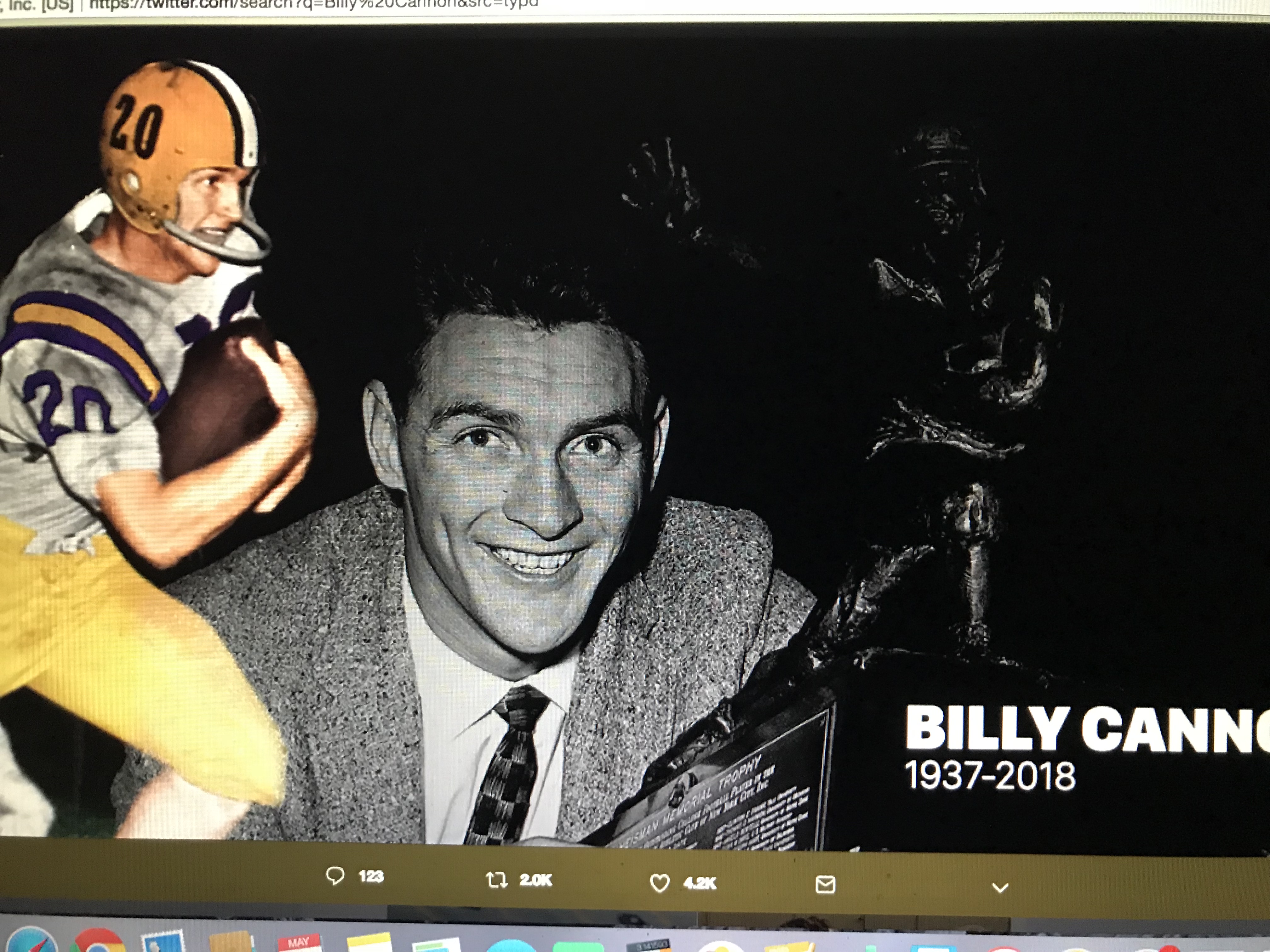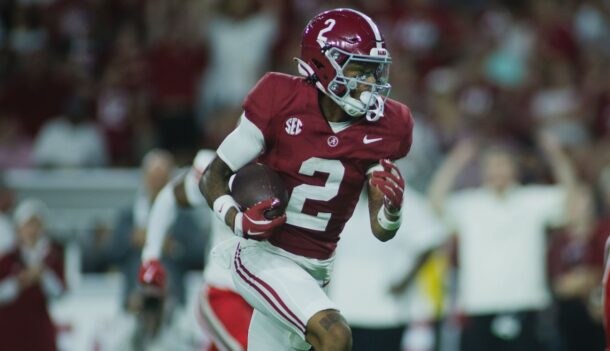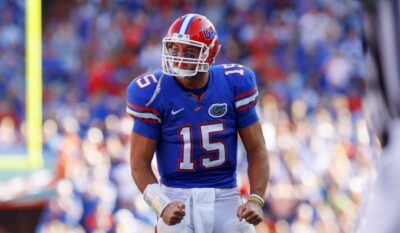
From famous punt return to Heisman to national title, Billy Cannon set the gold standard at LSU
By Les East
Published:
In some ways the LSU football team and players are always chasing Billy Cannon like those Ole Miss defenders futilely pursuing him during the most famous play in Tigers history.
Anyone in Louisiana who became an LSU football fan in the past half century or so has grown accustomed to annually re-watching Cannon’s legendary punt return against the Rebels on Halloween night in 1959.
Cannon, who died in his sleep Sunday at age 80, returned that punt 89 yards for a touchdown that lifted the top-ranked and defending national champion Tigers to a 7-3 victory over No. 3 Ole Miss.
No other play in Tigers football history is as prominent in Tiger Stadium lore as that punt return. Cannon was a remarkable three-way player who effectively clinched the 1959 Heisman Trophy with that trek to the end zone.
Watch LSU legend Billy Cannon's historic Halloween punt return that gave the Tigers the 7-3 victory over Ole Miss on Oct. 31, 1959. pic.twitter.com/gZAKiDOobo
— NOLA.com (@NOLAnews) May 20, 2018
Nowadays, nothing gets LSU fans worked up quite like their ongoing efforts to compete with Alabama, but during Cannon’s tenure, and for most of the history of LSU football, Ole Miss has gotten the Tigers’ blood boiling the most.
Mix in the stakes of two of the top three teams in country going head to head on a damp, humid, foggy night in Tiger Stadium and the stage was set for an historic moment.
Billy Cannon led LSU to the national title in 1958 and became the first Tiger to win the Heisman Trophy in 1959.
The defenses dominated that night and the Rebels maintained a 3-0 lead into the fourth quarter. The game had become a battle of punting and field position, and Ole Miss was poised to gain a significant field-position edge as the minutes ticked away and Jake Gibbs launched a punt deep into Tigers territory.
The ball landed on the soggy turf in front of Cannon, bounced directly to him and nestled into his hands as he stood poised near the right sideline. Cannon started left, turned upfield and worked his way back toward the right sideline, breaking seven tackles before reaching midfield and sprinting untouched the rest of the way.
A one-point loss at Tennessee a week later would deny the Tigers a second consecutive national championship, and a rematch with Ole Miss in the Sugar Bowl after the season ended with the Rebels exacting a significant measure of revenge with a 21-0 victory.
But Cannon’s place in LSU history already was well established as a standard for subsequent players and teams to aspire to.
Damn RIP Mr. Billy Cannon. It was for sure an honor to soak up everything we’ve talked about over the years! You’re one of the greatest in LSU history! Rest of GOAT✊? pic.twitter.com/LjY4Cy2Fw9
— DG (@DhaSickest) May 20, 2018
When D.J. Chark returned a punt 75 yards for a touchdown that was pivotal in a comeback from a 20-0 deficit to beat No. 10 Auburn last October in Tiger Stadium, the play was immediately immortalized for its similarities to Cannon’s.
For nearly half a century, LSU teams failed to duplicate the national championship that Cannon and his teammates won. Finally, the Tigers claimed one after the 2003 season and another after the 2007 season, but no player on either of those teams stands out as the driving force the way Cannon did for the ’58 team.
As for the Heisman Trophy, LSU is still looking for a second Tiger to claim that prestigious prize.
Last August the university announced that it would erect a statue of Cannon somewhere on campus. Sadly, Cannon, who settled about 30 miles north of Baton Rouge in St. Francisville, La., won’t be around the see the unveiling, the date of which is still to be determined.
LSU recently announced that it would retire former star Jerry Stovall’s No. 21 jersey during a ceremony this fall. The only other football numbers to be retired belonged to Tommy Casanova (37) and, of course, Cannon (20).
Though statistics from more than a half century ago must be viewed in a different context from those accumulated nowadays, Cannon’s remain remarkable.
In three years with the Tigers he rushed for 1,867 yards and 19 touchdowns on 359 carries and caught 31 passes for 522 yards and 2 touchdowns. He was a defensive standout who intercepted 7 passes. He also returned 31 punts for 349 yards and 21 kickoffs for 616 yards and punted 111 times for an average of 36.7 yards. He also completed 12 of 26 pass attempts for 121 yards, throwing a touchdown for the only score in a 7-0 Sugar Bowl victory against Clemson that capped the championship season.
In a statement issued by the Tigers athletic department on Sunday, Cannon’s family said, “His life was intertwined with the purple and gold, and he wouldn’t have had it any other way.”
And LSU teams and players will continue to be intertwined with him. When the Tigers challenge for a national championship and players reach significant milestones and earn prestigious awards, they’ll achieve the ultimate honor at LSU — being compared to Billy Cannon.
Les East is a New Orleans-based football writer who covers LSU for SaturdayDownSouth.com. Follow him on Twitter @Les_East.







